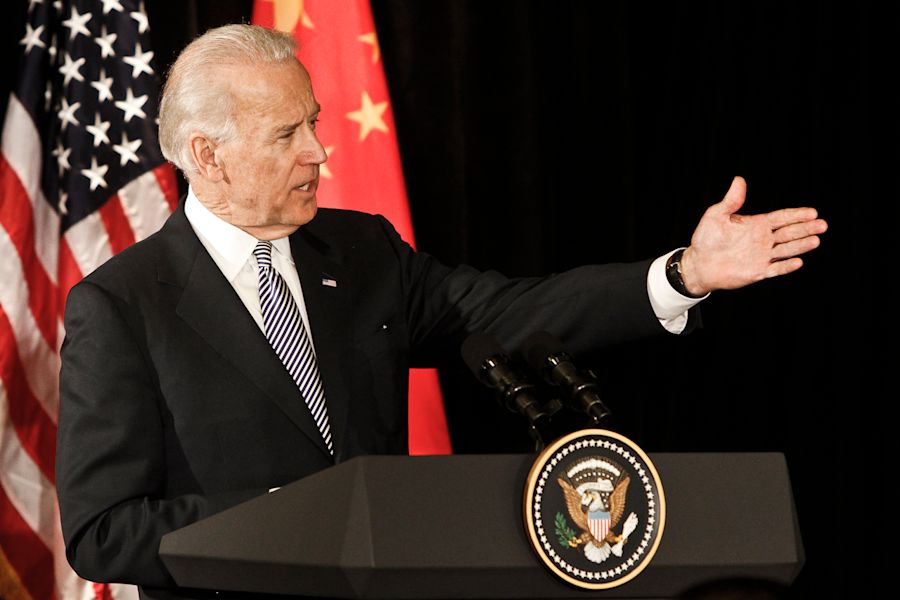What does the coming Biden presidency mean for China?
Only days before the US presidential elections, former US ambassador to China, Max Baucus, told the South China Morning Post that the Chinese leadership was “conflicted” over the outcome of the elections, but ultimately preferred a victory of Joe Biden. Remarkably, with this statement Baucus, a politician of the Democratic Party (a former Senator), echoed Trump’s claim. Outgoing US President Donald Trump repeatedly said on the campaign trail that no president before him had been as tough on China and therefore, the leadership in Beijing preferred Biden. On the surface, this line of argument might appear convincing given that Trump has not only pressured China over lack of economic reform and unfair trade practices but also used US leverage when initiating a trade war and technological decoupling as well as tightening export controls.
A closer examination, however, lends very little support to the hypothesis that China preferred Biden over Trump. For the Chinese leaders, great power relations and China’s further rise will only get more difficult under Biden. It is very unlikely the excellent analytical apparatus of the Chinese leadership has not come to the same conclusion. A second term for Trump would have been the best engine for China’s rise.
The first Trump term: a watershed in the US China policy?
The Trump years have turned the great power relations upside down. Gone are the days when Western observers on both sides of the Atlantic were critical but (cautiously) optimistic when discussing China. For decades, Americans and Europeans saw China on a gradual track of economic reform that at least some thought would ultimately lead to political liberalization. From this perspective, an active and constructive engagement of China was the best the West could do to facilitate reform. The Chinese society was growing rich and showed first signs of pluralization. More and more people expressed a diversity of opinions, including voices critical of the Chinese Communist Party, on Chinese social media. Alastair Iain Johnston has convincingly demonstrated that previous US administrations had never been as naïve about the “engagement policy” as its critics claim. However, without doubt, the assessment of China in both the US and Europe have turned much more critical in recent years.
The last moment of “enthusiasm” was the communication released after the Third Plenary Session of the Chinese Communist Party’s Central Committee in 2013 that promised that the market should become “decisive” for China’s economy. Whoever read the details accompanying the communication could not be surprised that this turned out to be an empty phrase. For most Westerners, however, it was the last sign of hope before they grew disillusioned of President Xi Jinping’s strengthening of national champions and state-owned enterprises, his clamp down on internet freedoms, the suppression of Muslim minorities in Xinjiang, his policies in Hong Kong and the strengthening of visibility and demand for loyalty to the Chinese Communist Party. Once the world realized that China’s paramount leader Xi Jinping ushered its optimistic hopes, President Barack Obama was already preparing his way out of the White House. It is not unlikely that Hillary Clinton would have adopted a tougher policy on China compared to Obama as well, though rhetorically very different from Trump.
Hence, not Trump’s electoral victory changed America's approach but rather the realization that Xi Jinping was reversing a number of reforms in China that the US and Europe had always believed would continue. New York Times columnist and Pulitzer Prize winner Thomas Friedman captured this when stating that
“Trump is not the American president America deserves, in my opinion. But he definitely is the American president China deserved.”
Yes, Trump changed America’s China policy. But China is a rare case of bipartisan consensus in the US.
Beyond the bipartisan consensus: Where do Biden and Trump differ?
Without doubt, Trump’s impulsive, vulgar, and erratic style of policymaking did not find broad support in Washington – on neither side of the political spectrum. Beyond the growing bipartisan consensus that the US needed to get tougher on China, Trump posed an additional challenge to China because he was unpredictable. This might have become even stronger in a second Trump term since he would have not sought reelection. The main difference between Trump (and his closest aides) and the rest of the establishment in Washington on both sides of the political specture is, however, a different one: Trump always overestimated US power in the relations with China.
When ignoring some temporary actions of Trump’s zigzag course and assessing the general picture, he adopted a policy of maximum pressure even if this came at economic cost for the United States. Economic sanctions were costly not only for China but also for the US and Trump’s own voter base. The rationale of this policy lies in the expectation of a relatively quick victory. Either, the Trump camp thought, the Chinese Communist Party would change its policy in light of the cost US pressure caused or the regime would break down entirely. In a recent webinar of the “Young China Watchers” Melanie Hart, a senior researcher at the Think Thank “Center for American Progress”, further explained that many Trump aides operated on the assumption that the Chinese Communist Party was America’s enemy that the US should not cooperate with.
The overwhelming majority of Republicans and Democrats, including Joe Biden and Kamala Harris, seem to see China and the Chinese Communist Party rather as a rival and competitor that is not close to breakdown. And if the Chinese Communist Party falls, then hardly because of foreign pressure. In a word, the bipartisan consensus on China simply more realistic than what drove Trump’s China policy.
Democratic cooperation is back: Biden searching for alliances and multilateralism
Biden’s more realistic outlook on China also facilitates his turn to America’s traditional allies: democratic states in Europe, Asia and beyond. Biden might be a more reliable counterpart for China, but so is he for democracies around the globe. In contrast to Trump, Biden does not only care about business but also political values. Reports suggest that Trump congratulated Xi on China’s oppression of Uighurs and signaled that the US would not stand in China’s way when clamping down civil liberties in Hong Kong that are enshrined in the a bilateral treaty, the Sino-British Declaration of 1984. This value-free American policy will come to an end on 20 January 2021 when Trump leaves the White House.
First signs already indicate that Biden aids and European diplomats have started to negotiate a “grand bargain” under which Biden will fully commit to fight climate change while the EU will align with America’s China policy. If Joe Biden leads the US back into a series of core international institutions such as the Paris Climate Accord or the United Nations Human Rights Council he will challenge the position that China had taken when filling the vacuum that Trump’s withdrawal had left. Similarly, a more cooperative approach to the World Trade Organization would strengthen transatlantic cooperation and ultimately the US rather helping America to achieve its interests – at the cost of Chinese influence.
Hence, China cannot hope for a return to pre-Trump times. It will be faced with a US President that is more realistic of America’s and Chinese power, cherish universal values and (re-)build alliances. The bipartisan consensus in Washington will continue to hold. Much of the room Trump had given to China will vanish. The results of the US elections could have not been worse for Beijing.
And the winner is… Europe
In the long-run, Europe could benefit from the course of history. Before Trump’s electoral victory, the EU unquestionably relied on the US. The last four years have made painfully clear that Europe needs to act more autonomously and freely. The fact that Biden has won the US elections but not by overwhelming margins reminds the EU that Trump is more than a misunderstanding and something similar could happen again in four- or eight-years’ time. Europe got its traditional ally back but not its certainty in the transatlantic partner. These are ideal prerequisites to formulate a more independent European foreign policy.
This is not to say that the EU will develop equidistance to China and the US. Partnership and competition with China will need to be informed by the “systemic rivalry” that the European External Action Service has identified in its 2019 “Strategic Outlook”. But what that implies will depend less on the US position than we could have imagined four years ago before Trump took office.


